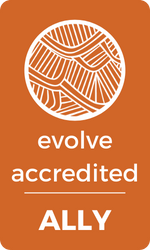MH Training’s Mental Health Courses
will equip you and your teams with the
practical skills to support someone experiencing a mental health problem.
Our courses are tailored for
Mental Health for
Workplaces
We've worked with
- Tradies
- Finance industries
- Manufacturing companies
- Farming and agriculture industries
- Betting and gaming
- Funeral Directors
- NDIS providers
- Local, State and Federal Govt's
- Large and small enterprises
Mental Health for
Those working with young people
We've worked with
- Schools
- Youth support groups
- Community groups
- Parents and carers
- Sporting clubs
- Out of home care staff
- NDIS support staff
Mental Health for
Community Organisations
We've worked with
- Men's shed
- Sporting organisations
- Rural communities
- Non-for-Profits
Mental Health for
Suicide Prevention and Intervention
We've worked with
- Frontline workers
- Support workers
- Families
- Community groups
- Frontline
Work Health and Safety Workshops on Psychosocial Hazards and Risks
Work Health and Safety Regulation 2011 (WHS Regulation) have recently been updated to include psychosocial hazard regulations. These regulations outline the responsibility of employers to identify, mitigate and monitor psychosocial hazards and risks.
The things at work that can harm mental health are known as psychosocial hazards. These hazards can also cause physical harm
Psychosocial hazards that may arise at work
- Job demands
- Low job control
- Poor support
- Lack of role clarity
- Poor organisational change management
- Inadequate reward and recognition
- Poor organisational justice
- Traumatic events or material
- Remote or isolated work
- Poor physical environment
- Violence and aggression
- Bullying
- Harassment including sexual harassment
- Conflict or poor workplace relationships and interactions
Case Studies
Testimonial
I really mean this, where do l begin?, in all the training l have ever attended in all my years with the company, nothing has come close to what l got out of your course.
For me it was raw, emotional and a game changer. I simply can’t get the course out of my head even 2 days after it concluded.
It has been an absolute profound impact but in a positive way, let me assure you. You Pauline helped me realize the burdens l was carrying without actually realizing this before the course, i.e., the “ shit in the bucket” scenario. Branko - Manufacturing



